Mom’s Not Acting Herself Today. Now what?
Mom’s Not Acting Herself Today.
Now what?
A new book helps family caregivers
know what to do.
Imagine this scenario: You are caring for your 83-year-old mother with Alzheimer’s, and she wakes one morning seeming ‘not herself’. She’s slower to get out of bed, seems more confused than usual, and barely eats her breakfast. She’s unable to tell you that anything is wrong.
Thousands of caregivers for persons with memory problems face similar situations each day: the person they care for is different, and they need to figure out what to do. Situations like this can be stressful and anxiety provoking. Here are a few questions the above caregiver may have:
“What can these symptoms possibly mean?”
“How can I tell if these symptoms are urgent?”
“If I want to phone someone for advice, what information should I have on hand?”
“What can I try at home to help my mother feel better?”
“What changes in her condition should I watch out for that would make me want to seek medical care?”
A new book from experts at the University of North Carolina at Chapel Hill and Duke University seeks to help caregivers answer these types of questions and more. The Alzheimer’s Medical Advisor: A Caregiver’s Guide to Common Medical and Behavioral Signs and Symptoms in Persons with Dementia (Sunrise River Press, 2017) is a comprehensive, evidence-based resource covering information on over 50 issues, from medical problems like abdominal pain, vomiting, or cough, to behavior or activity changes that may be associated with an illness, like increasing anxiety, worsening confusion, and not eating or drinking well. It encourages caregivers to be informed and prepared, providing basic symptom facts, information on urgent symptoms and complications, and practical tips for taking care of the person at home.
Richly illustrated and easy to read, the book is different from your typical ‘medical reference guide’, because people with cognitive problems often have different ways of expressing illness, can be difficult to transport for doctor’s visits, and may not want to follow doctor’s orders. Indeed, caregivers have a lot to juggle and consider; so, The Alzheimer’s Medical Advisor provides a great go-to reference to be used either as new problems arise or to prepare the caregiver in advance.
Now, imagine that you’re the same caregiver as above, but you have this book at your bedside. You have read the information on how to take vital signs, and so you measure them, and are reassured that they are normal. You are also alert to the signs of dehydration, including weakness and confusion, and decide to follow the home care tips to encourage your mother to drink more.
As you talk with the doctor’s office, you’re able to tell them the information they most want to know. You’ll likely get better advice from the doctor’s office, know what questions to ask, and may even save yourself a trip to the doctor.
The book also provides information on many other health care related topics that most caregivers for someone with cognitive problems will eventually face, such as:
“How can I help the person I care for to take the medicines they need?”
“How can I find a good primary care provider, home care aide, or nursing home?”
“How can I make a hospitalization or surgery less stressful?”
“How can I take care of my health and safety while I’m helping someone else?”
“How can I prepare for the advanced stages of dementia?”
“How can I keep medical information organized?”
To find the answers to these questions and more, you can purchase The Alzheimer’s Medical Advisor: A Caregiver’s Guide to Common Medical and Behavioral Signs and Symptoms in Persons with Dementia from major retailers like Barnes & Noble and Amazon, and from the Sunrise River Press website.
Listen to a great conversation with Dr Sloane!
Contact Information For Dr. Philip Sloane:
Address: Department of Family Medicine,
University of North Carolina,
Chapel Hill, North Carolina, 27599-7595
Email: Philip_Sloane@med.unc.edu
https://youtu.be/XLNFPSEdf8I
We are honored by your response to our offering of the Dementia Friendly Symposium and Cruise and we are encouraging people to book their cabins before we are sold out!
For more details on the symposium and cruise go to https://alzheimersspeaks.com/cruise-with-us
Click here for the Symposium Program
Kathy Shoaf the travel agent handling the symposium and cruise can be reached at: 219-608-2002 or email her at Kathy.Shoaf@CruisePlanners.com
Check Out The Additional Resources
for Those Dealing with Dementia
Click Below And Get Involved –
Only 3 simple Question
Color Your Mind by Maria Shriver
“This is an amazing book which brings a holistic approach to engaging those with dementia and their care partners. I love how Maria intertwines the simple yet creative works of coloring which has been embraced by so many people looking for a peacefulness within and now has created a product specifically designed for those living with dementia.”
~ Lori La Bey, founder of Alzheimer’s Speaks


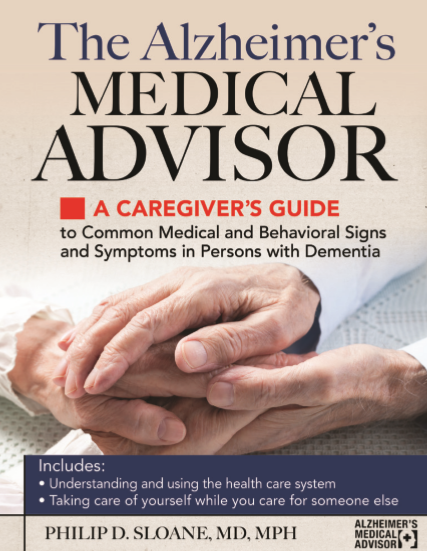
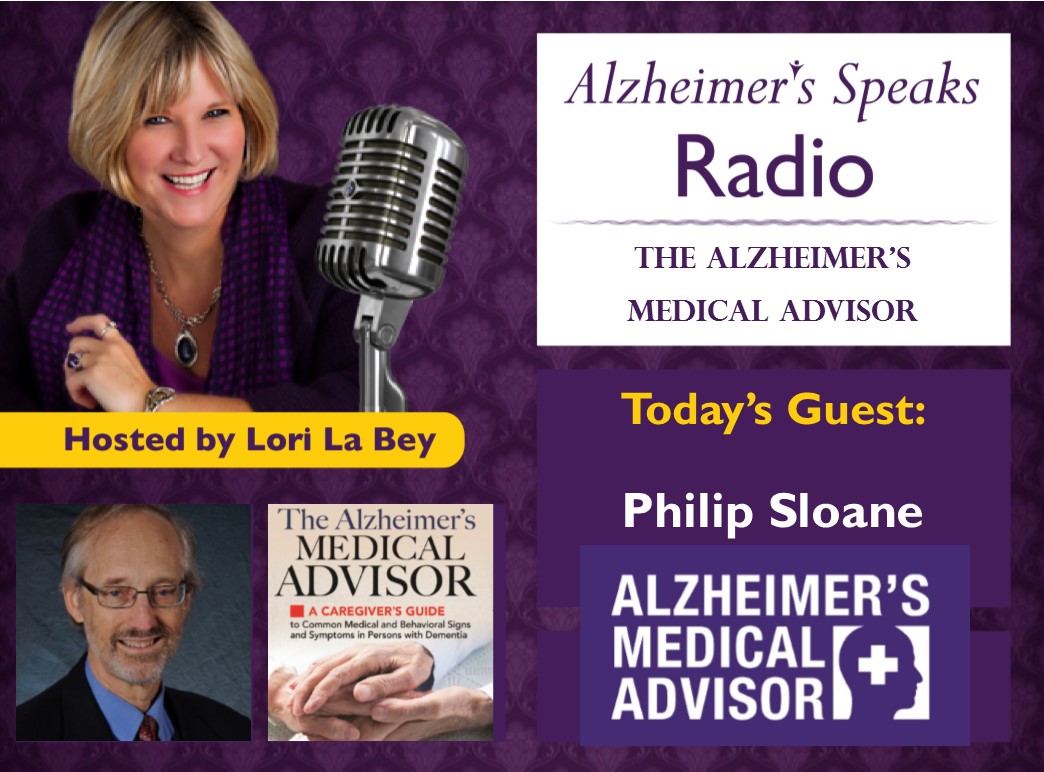

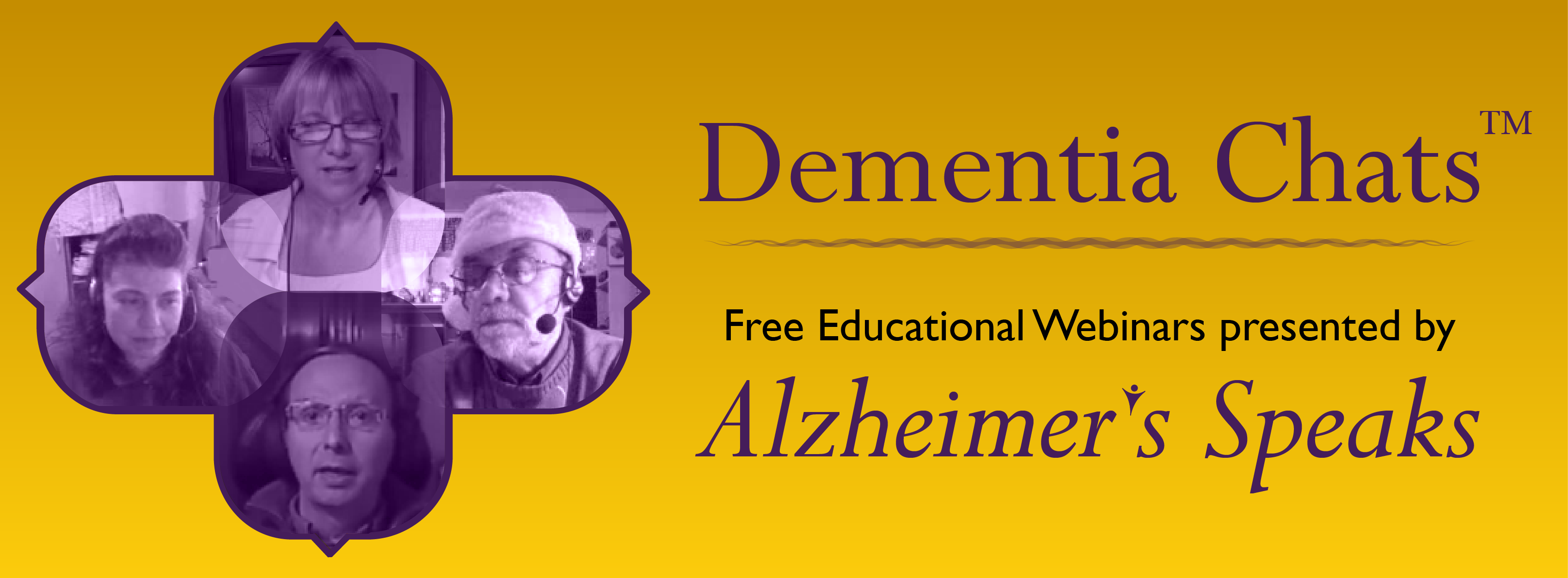
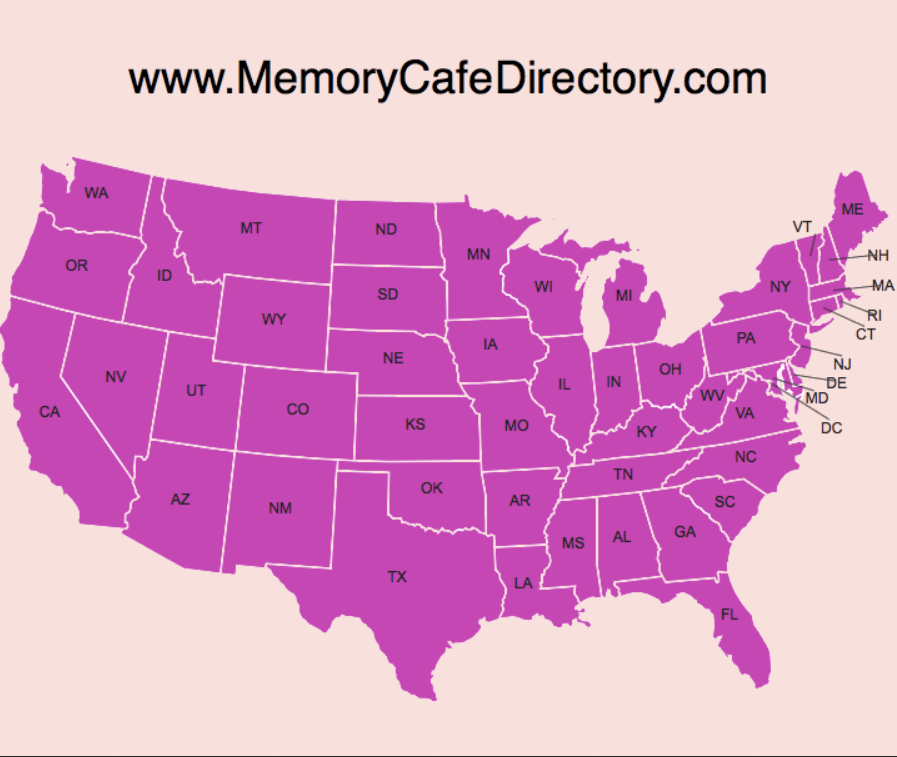
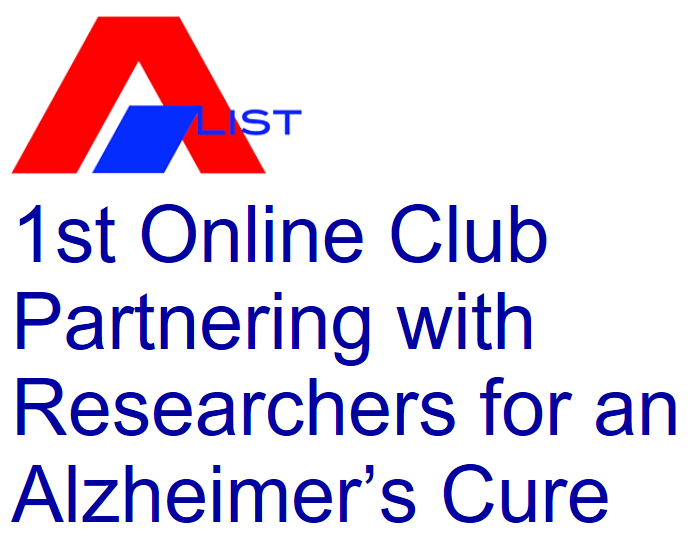
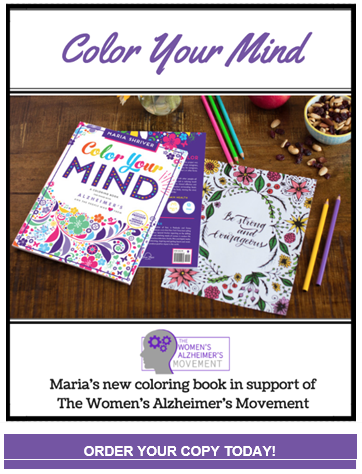

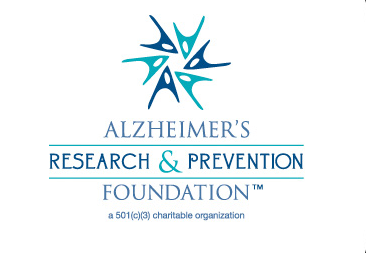
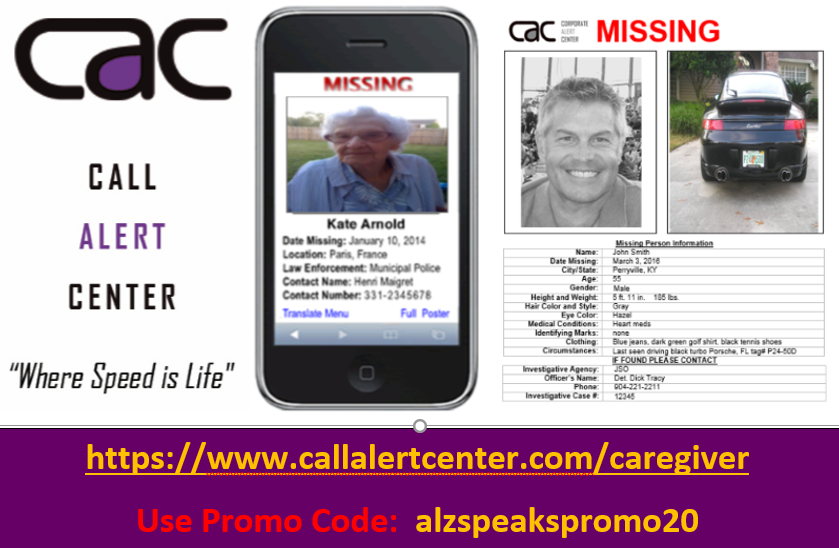
One Reply to “Mom’s Not Acting Herself Today. Now what?”